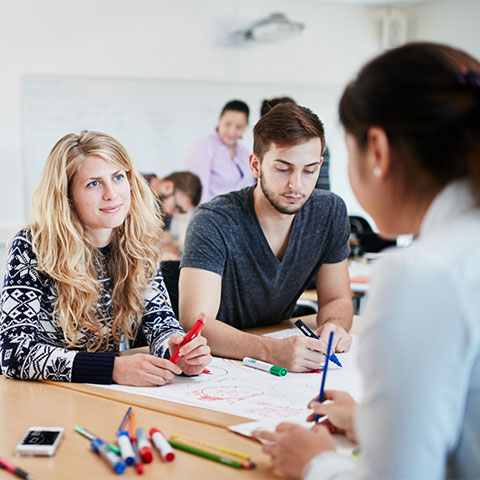In Denmark, students play an active role in the learning process.
Our teaching style gives students a great deal of individual responsibility, and they are expected to participate in debate in the classroom.
Theory and practice go hand in hand
The Scandinavian education culture combines theory and practice relating to the trades and professions for which we train our graduates.
All our study programmes include practical training periods, during which the students not only observe real businesses in action but also work with the challenges real businesses face.
As a student, the ability to combine theory with practice will give you the basis for new knowledge and insight.
Dialogue-based communication
At our schools and faculties, our teaching style focuses on students being responsible for their own education. This is different from many other countries, where the teacher is expected to be responsible for students’ development.
We emphasise contact between teachers and students, and you’ll be able to see this in the way we communicate in the classroom.
In VIA we also emphasise different kinds of interdisciplinarity which bring insight into the various fields and offers the opportunity of developing and involving more perspectives on education both for students and staff.
We expect students to actively participate in lectures by asking relevant questions and by challenging themselves and the teacher. Overall, we encourage the exchange of ideas and knowledge for the benefit of everyone.
Learning methods
Students play an active role in the learning process and take responsibility for planning and carrying out projects, either independently or in groups. The students also learn how to work in multicultural teams, with teachers assigned as supervisors to guide them through the learning process.
Future employers, whether private companies or public institutions, put a premium on these qualifications. They know our graduates are up-to-date with the latest theories and methods as well as hands-on experience with how things are done in “real life”.
Project-based learning is part of our educational culture. Students are responsible for their projects under the supervision of teachers who make sure the student is always on track. Our culture puts a great deal of individual responsibility in the hands of students during projects. We also expect that each student will be able to work closely with other students.
